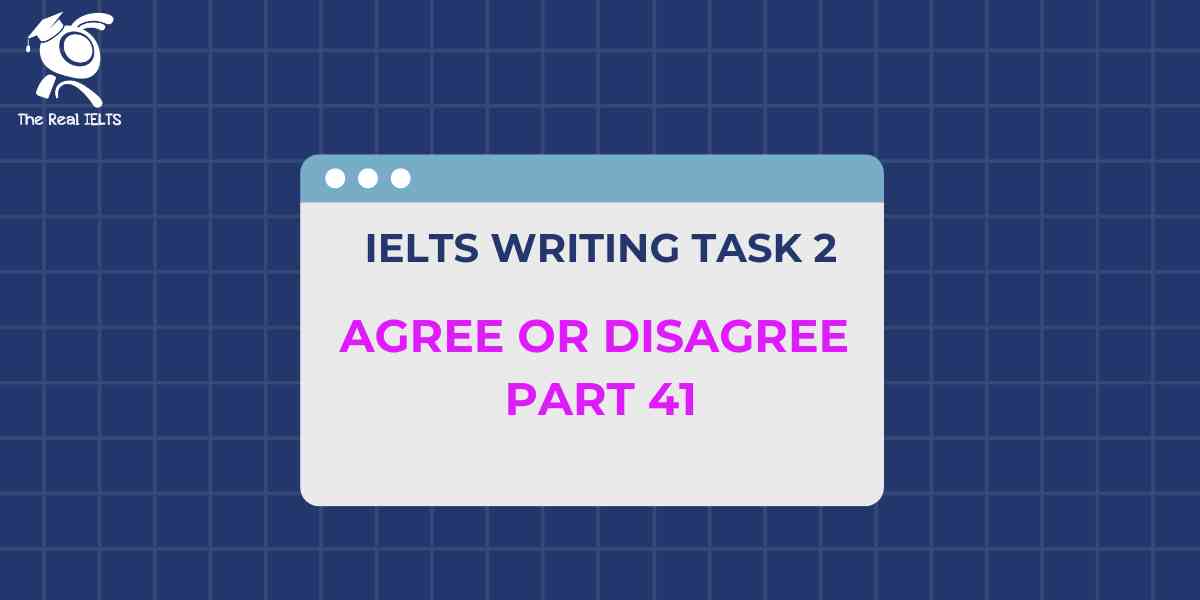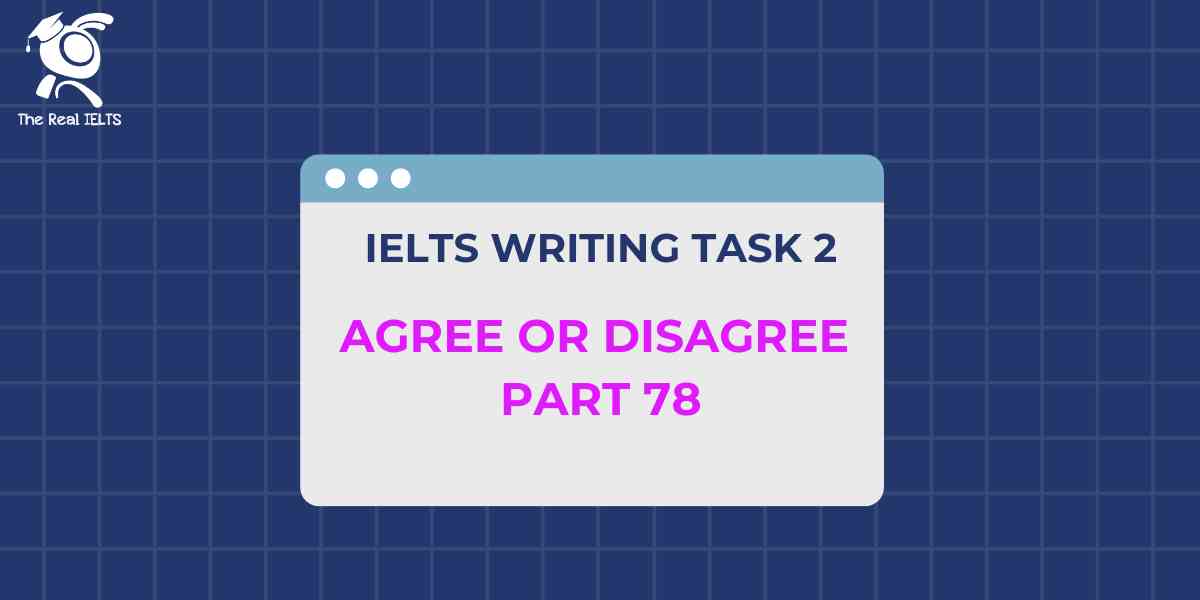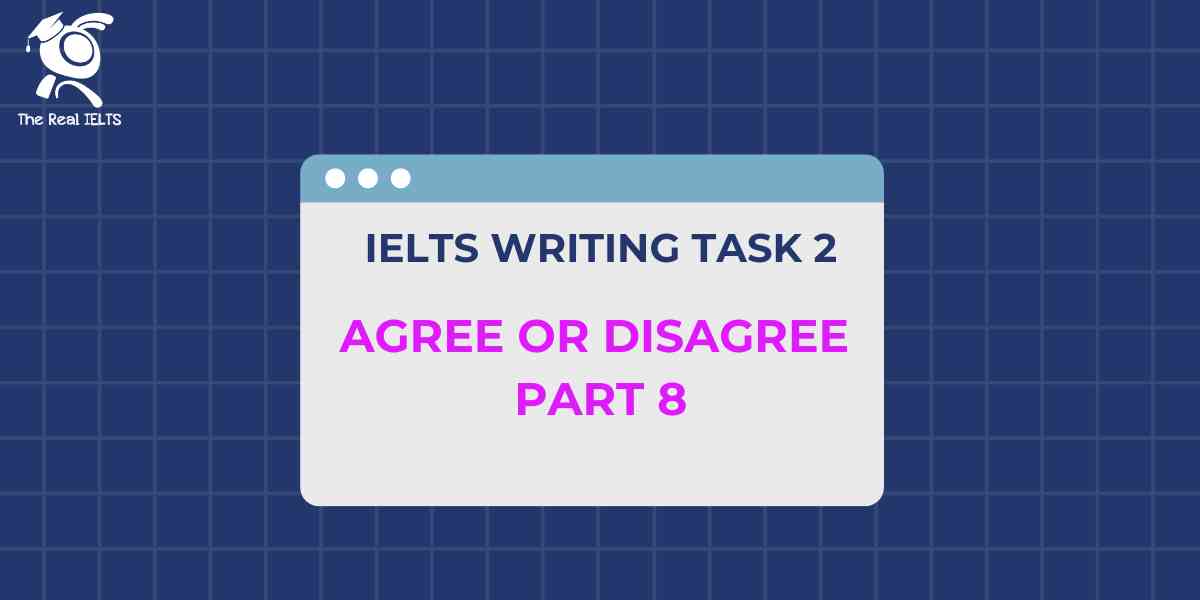Đề bài IELTS Writing Task 2 dạng Agree or Disagree Part 41:
You should spend about 40 minutes on this task
The government should subsidize renewable energy sources. To what extent do you agree or disagree?
Write at least 250 words.
Giải mẫu IELTS Writing
In recent years, the debate over whether governments should subsidize renewable energy sources has intensified. I partially agree with the notion that government subsidies are necessary to promote renewable energy, but I also believe that this approach has its limitations and potential drawbacks.
Firstly, government subsidies for renewable energy are crucial in the initial stages of development. Renewable energy technologies, such as solar, wind, and hydroelectric power, often require significant upfront investment. Without financial support, many private companies might hesitate to invest in these technologies due to high initial costs and uncertain returns. Subsidies can help reduce the financial burden on these companies, encouraging more investment and accelerating the development and deployment of renewable energy sources. For example, countries like Germany and Denmark have successfully increased their renewable energy capacities through substantial government support.
Moreover, subsidizing renewable energy can lead to long-term environmental and economic benefits. By reducing reliance on fossil fuels, governments can help mitigate climate change and reduce pollution. This not only benefits the environment but also improves public health and reduces healthcare costs associated with pollution-related illnesses. Additionally, investing in renewable energy can create jobs and stimulate economic growth in new sectors. For instance, the renewable energy industry has created numerous jobs in countries that have heavily invested in it, contributing to economic diversification and stability.
However, there are also arguments against extensive government subsidies for renewable energy. One major concern is the potential for market distortion. Heavy subsidies might lead to an over-reliance on government support, discouraging innovation and efficiency within the industry. Companies may become complacent, relying on subsidies rather than striving to reduce costs and improve technology. This can result in an inefficient allocation of resources and ultimately hinder the growth of a competitive and self-sustaining renewable energy market.
Additionally, government funds are limited and must be allocated across various essential services, such as healthcare, education, and infrastructure. Excessive subsidies for renewable energy could divert funds from these critical areas, potentially leading to underinvestment in other vital sectors. Therefore, it is important to strike a balance between supporting renewable energy and ensuring that other essential services are adequately funded.
In conclusion, while government subsidies for renewable energy sources are necessary to promote their development and realize long-term environmental and economic benefits, it is essential to approach this support with caution. A balanced approach that encourages innovation and efficiency while avoiding market distortion and ensuring adequate funding for other essential services is crucial. By doing so, governments can effectively support the transition to renewable energy without compromising other important societal needs.
Cấu trúc ngữ pháp và cấu trúc câu
Cấu trúc câu:
- Câu chủ động:
- “I partially agree with the notion that government subsidies are necessary…”
- “Renewable energy technologies often require significant upfront investment.”
- “Subsidies can help reduce the financial burden on these companies…”
- Câu bị động:
- “Government funds are limited and must be allocated across various essential services.”
- Câu phức:
- “By reducing reliance on fossil fuels, governments can help mitigate climate change and reduce pollution.”
- “Without financial support, many private companies might hesitate to invest in these technologies due to high initial costs and uncertain returns.”
- Câu ghép:
- “This not only benefits the environment but also improves public health and reduces healthcare costs associated with pollution-related illnesses.”
- “Companies may become complacent, relying on subsidies rather than striving to reduce costs and improve technology.”
Cấu trúc ngữ pháp:
- Cấu trúc so sánh:
- “Without financial support, many private companies might hesitate to invest in these technologies due to high initial costs and uncertain returns.”
- “A balanced approach that encourages innovation and efficiency while avoiding market distortion…”
- Cấu trúc câu điều kiện:
- “Without financial support, many private companies might hesitate to invest…”
- “If governments do not provide subsidies, the transition to renewable energy may be slow.”
- Mệnh đề quan hệ:
- “Renewable energy technologies, such as solar, wind, and hydroelectric power, often require significant upfront investment.”
- “The renewable energy industry has created numerous jobs in countries that have heavily invested in it…”
Từ kết nối các câu và đoạn văn:
- Kết nối đoạn văn:
- “Firstly,” – Dùng để giới thiệu ý đầu tiên.
- “Moreover,” – Dùng để bổ sung ý.
- “However,” – Dùng để trình bày ý trái ngược.
- “Additionally,” – Dùng để thêm ý khác vào luận điểm.
- “In conclusion,” – Dùng để kết luận bài viết.
- Kết nối câu:
- “For example,” – Dùng để đưa ra ví dụ.
- “This not only… but also…” – Dùng để liệt kê hai ý quan trọng.
- “By reducing… governments can help…” – Dùng để chỉ kết quả của hành động.
- “One major concern is…” – Dùng để trình bày vấn đề.
- “Therefore,” – Dùng để kết luận ý kiến.
Các từ vựng tiếng Anh cần lưu ý trong bài viết
- Subsidize – trợ cấp
- Renewable energy sources – các nguồn năng lượng tái tạo
- Government subsidies – trợ cấp của chính phủ
- Initial stages – giai đoạn ban đầu
- Upfront investment – đầu tư ban đầu
- Financial support – hỗ trợ tài chính
- Investment – đầu tư
- Deployment – triển khai
- Mitigate – giảm thiểu
- Climate change – biến đổi khí hậu
- Pollution – ô nhiễm
- Public health – sức khỏe cộng đồng
- Healthcare costs – chi phí chăm sóc sức khỏe
- Economic growth – tăng trưởng kinh tế
- Diversification – đa dạng hóa
- Market distortion – méo mó thị trường
- Innovation – đổi mới
- Efficiency – hiệu quả
- Allocation of resources – phân bổ tài nguyên
- Self-sustaining – tự duy trì
- Essential services – các dịch vụ thiết yếu
- Underinvestment – đầu tư thiếu
- Critical areas – các lĩnh vực quan trọng
- Strike a balance – đạt được sự cân bằng
- Transition – chuyển đổi
- Societal needs – các nhu cầu xã hội
Đọc thêm các bài Luyện Thi IELTS khác trong link nhé.















